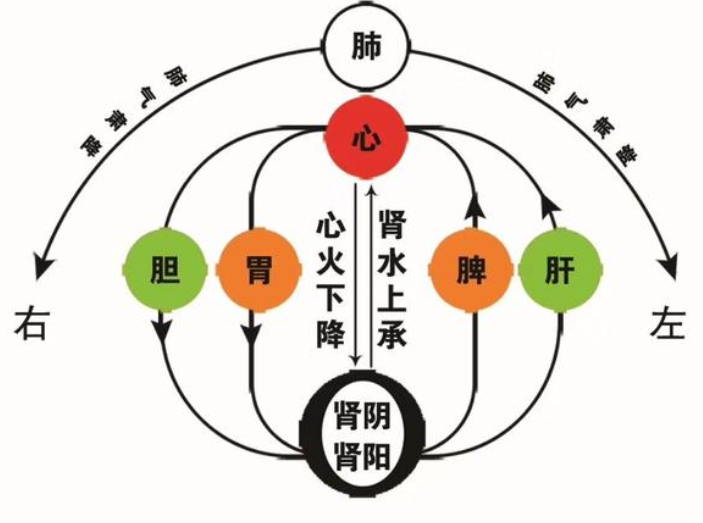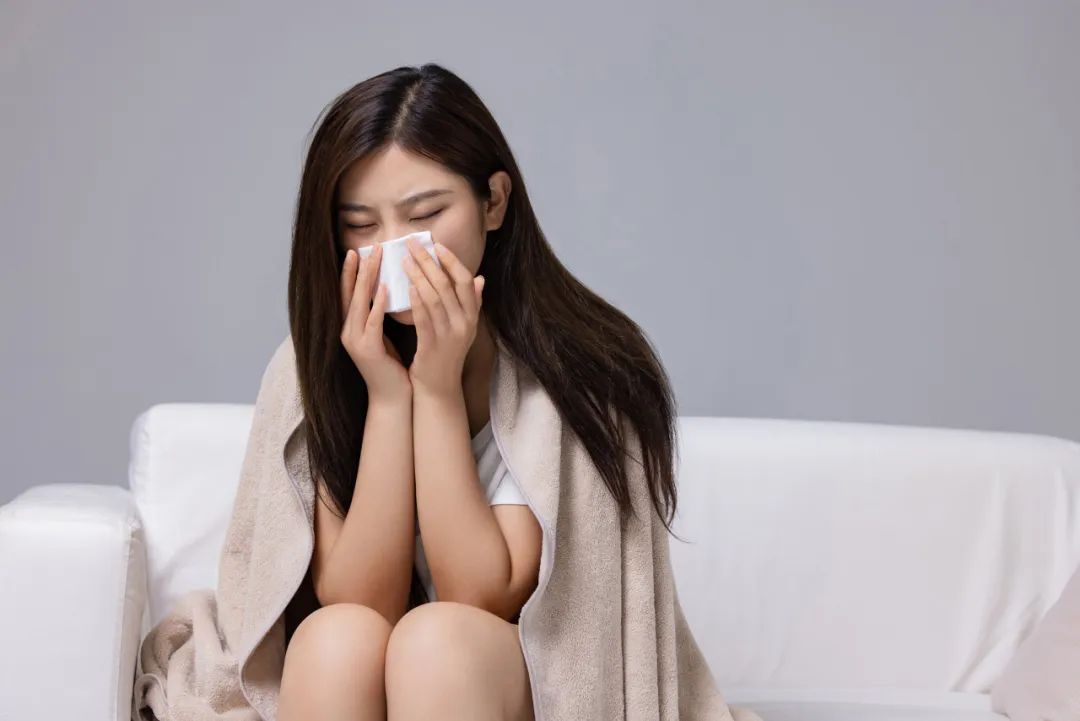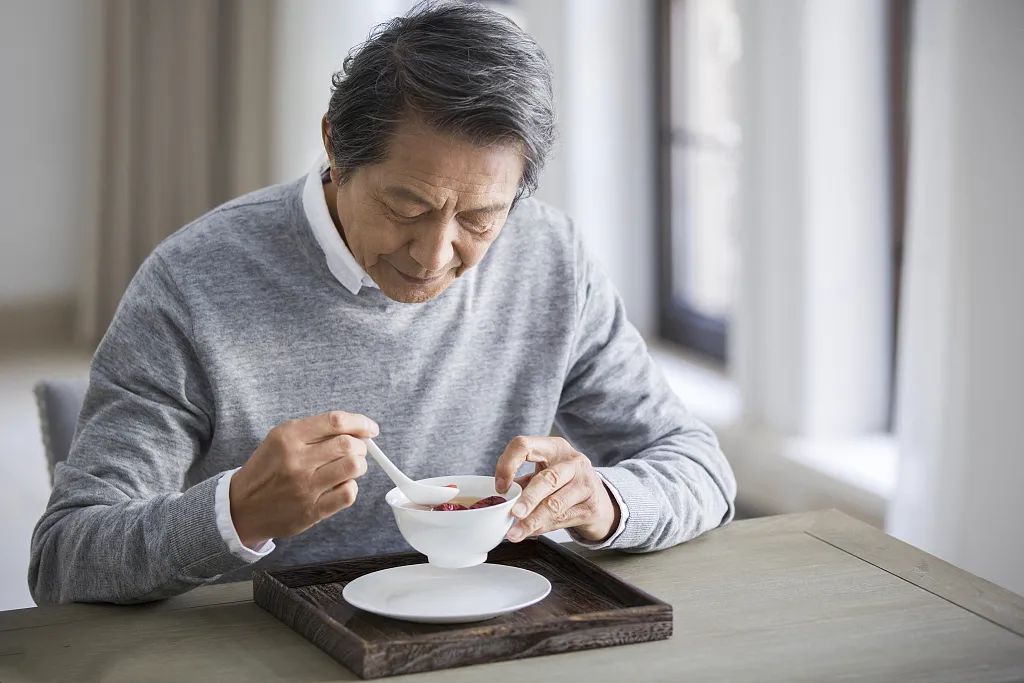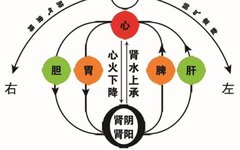


In the field of Traditional Chinese Medicine (TCM), the human body seems to have a special connection with the number “five”, including the five senses, five organs, and five fluids. Understanding the correspondence between them is greatly beneficial for our health.
Today, we will briefly discuss the concept of the five fluids in the human body.



 Five Organs Corresponding to Five Fluids
Five Organs Corresponding to Five Fluids


“Sweat, mucus, tears, saliva, and spittle” are collectively referred to as the five fluids of the human body. They are not only products of the body’s fluid metabolism but also essential substances for life activities, closely related to the five organs.
According to the “Su Wen: On the Five Qi”, it states: “The five organs transform into fluids: the heart produces sweat, the lungs produce mucus, the liver produces tears, the spleen produces saliva, and the kidneys produce spittle; these are called the five fluids.”
In TCM diagnosis, the secretion status of the five fluids can reflect the actual condition of the body’s organs.

 Sweat, the Fluid of the Heart
Sweat, the Fluid of the Heart


“Sweat is the essence of qi.”
Literally, sweat is composed of “water” and “dry”. Here, “dry” can be simply understood as the trunk of the body, which is the main or important part of a thing. Combined with the radicals, it means the liquid produced by important parts of the body.
In the “Huangdi Neijing”, the heart is regarded as the sovereign organ, from which the spirit emerges. Among the five organs, the heart is the ruler, controlling human actions and thoughts.
Thus, TCM states that “sweat is the fluid of the heart”, meaning that within the heart is blood, and outside it is sweat.
The symptom of sweating reflects the imbalance of yin and yang in the body, symbolizing the struggle between righteousness and evil. Sweat is considered yin; if the body’s righteous qi is insufficient and yang qi is unstable, then the yin fluids lose their restraint and sweat leaks out.
Excessive sweating can lead to damage to the heart’s yin qi, causing internal heat disturbance, resulting in symptoms such as palpitations, anxiety, and shortness of breath.
Common types of sweating include spontaneous sweating and night sweating.
1. Spontaneous Sweating
Frequent sweating during the day, especially after activity, is called spontaneous sweating.
① Chronic illness leading to weakness, with constant spontaneous sweating, accompanied by shortness of breath and fatigue, indicates qi deficiency spontaneous sweating. Qi deficiency spontaneous sweating is mainly related to heart and lung issues.
It is recommended to use 5 jujubes (Da Zao), 30 grams of black beans (Hei Dou), and 60 grams of astragalus (Huang Qi), boiled in 150 milliliters of water, taken twice a day.
② Constant spontaneous sweating, worsening with movement, accompanied by cold intolerance and cold limbs, indicates yang deficiency spontaneous sweating, which is attributed to spleen and kidney issues.
It is recommended to keep the indoor temperature warm and to use warming tonics for adjustment.
2. Night Sweating
Also known as “sleep sweating”, this occurs when sweating starts after falling asleep and stops upon waking.
Those with insufficient heart yin blood are prone to night sweating; it is recommended to nourish blood and calm the heart.

 Mucus, the Fluid of the Lungs
Mucus, the Fluid of the Lungs


Mucus is a physiological secretion that flows from the nose, serving to moisten and cleanse the nasal passages.
TCM believes: “The lungs open to the nose; when the lung fluids are abundant, they flow out through the nasal passages as mucus.” The lungs reside in the chest, serving as the canopy for the five organs and six bowels, connecting to the airways and throat, collectively referred to as the lung system. The lungs govern qi and are the site of gas exchange between the body and the environment.
When pathogenic factors invade the lungs, the nose is affected, leading to changes in mucus. Therefore, lung disorders can be directly observed through abnormal mucus secretion.
1. Dry Nose with No Mucus
Those with lung yin deficiency may sometimes present with a dry nose and no mucus, indicating a deficiency of lung yin fluids and excessive heat. Yin fluid deficiency leads to dryness in the lungs, often due to the drying heat of pathogenic factors.
Dryness is the predominant qi of autumn, which easily harms the lungs. Dry pathogenic factors can deplete the body’s fluids, manifesting various dry symptoms and signs.
It is recommended to consume foods that moisten the lungs, such as snow pears, lilies, tremella, and yam after the start of autumn.
2. Clear Mucus Flow
Clear mucus flow due to wind-cold leading to lung qi not being disseminated is often observed.
“Not disseminated” means it cannot be properly circulated. When external pathogenic factors invade, the skin and hair close off from the cold, preventing lung qi from circulating, leading to symptoms such as chills, fever, nasal congestion, and mucus flow.
It is recommended to nourish the lungs. Foods that clear heat, nourish yin, stop cough, and resolve phlegm are suitable.
3. Yellow and Turbid Mucus Flow
Yellow and turbid mucus flow due to wind-heat invading the lungs is often observed. This indicates that external wind-heat or prolonged wind-cold has transformed into heat, causing lung qi to be obstructed and manifesting symptoms of lung defense being affected.
It is recommended to clear the lungs, dispel heat, and resolve phlegm.

 Tears, the Fluid of the Liver
Tears, the Fluid of the Liver


The character for tears is composed of “water” and “eye”. As the name suggests, tears are related to the eyes.
TCM believes that the liver opens to the eyes, and the eyes receive blood for vision. Therefore, since tears are the fluid of the liver, they must be related to liver blood. When liver blood and liver fluids are abundant, they overflow into the eyes as tears.
Tears can moisten the eyes; if there are changes in the liver, they can also be reflected in the abnormal conditions of tears.
1. Few Tears and Dry Eyes
This indicates liver yin blood deficiency, meaning the liver’s yin fluids are insufficient. This is often caused by qi stagnation transforming into heat, liver disease, or excessive heat from warm diseases depleting liver yin, or kidney yin deficiency.
It is recommended to nourish the liver and blood, and avoid anger.
2. Tears Flowing in the Wind
This is caused by wind evil affecting the liver meridian.
It is recommended to reduce eye strain, maintain cleanliness, and use wild chrysanthemum and mulberry leaves to brew water for washing.
3. Sticky and Hot Tears
This is caused by heat in the liver meridian.
It is recommended to use a cotton swab dipped in water to wipe the tear sac several times a day. Avoid spicy and irritating foods, and maintain regular bowel movements to allow heat to be expelled.

 Saliva, the Fluid of the Spleen
Saliva, the Fluid of the Spleen


Before explaining this section, we first need to understand a concept: what is the difference between “saliva” and “spittle”, both of which exist in the mouth?
There is a saying, “drooling with desire”, where the “saliva” refers to what we are discussing in this section. For example, when you think of eating sour apricots, the liquid secreted is saliva, while if you vigorously stir your tongue, the liquid secreted is spittle.
In simple terms, saliva is the clearer part of the liquid, while spittle is the thicker part.
TCM believes that saliva is the fluid of the spleen. The spleen opens to the mouth, and the spleen’s yin essence is distributed in the mouth, resulting in saliva. It is mainly used to dissolve food and assist digestion.
When the spleen has certain abnormalities, it will also reflect in the oral secretions—saliva.
1. Dry Mouth with Little Saliva
Excessive stomach fire can manifest as dry mouth with little saliva, indicating that the heat in the stomach is excessive, leading to disharmony in stomach qi and pathological changes due to heat damaging fluids.
Such individuals should avoid spicy and irritating foods, eat more fruits, fresh vegetables, and cool drinks, and may also use ophiopogon (Mai Dong) and adenophora (Sha Shen) decoction.
2. Tasteless Mouth
Those with spleen and stomach weakness may present with a tasteless mouth, nausea, and excessive saliva; they should warm the middle and strengthen the spleen. Avoid cold and overly hot foods, apply heat to the stomach area, and consume ginger soup or glutinous rice porridge with several jujubes.

 Spittle, the Fluid of the Kidneys
Spittle, the Fluid of the Kidneys


Spittle is the fluid of the kidneys; when kidney qi is abundant, the kidney’s yin essence rises to the mouth as spittle.
It is produced by the extraordinary points of the kidney, namely Jin Jin and Yu Ye, and some believe it is produced by the bladder meridian ascending to the head. Therefore, in TCM, spittle is attributed to the kidneys.
Spittle serves to moisten the mouth and dissolve food. However, abnormalities can occur during pathological changes. For instance, if there is liver and kidney yin deficiency, spittle may not be produced, leading to dry mouth and tongue, especially at night; or due to kidney deficiency causing excessive spittle or cold spittle.
For dry mouth, bitter taste, and weakness in the lower back and knees, it is recommended to use goji berries (Gou Qi Zi) and adenophora (Sha Shen) decoction. At the same time, regulate emotions, ensure adequate rest, and avoid spicy and irritating foods, as well as tobacco and alcohol.
For excessive spittle or cold spittle, it is advisable to warm the yang and promote fluid metabolism. It is recommended to maintain a regular lifestyle, prevent external pathogens, keep the skin clean, and eat light and easily digestible foods.
It is important to note that TCM views the human body as an organic whole, where the organs are interconnected, interdependent, and mutually restraining, each performing its own function.
The aforementioned changes can reflect certain diseases of the five organs in a timely manner, but they do not necessarily serve as definitive diagnostic standards. Therefore, it is sometimes necessary to observe through the four examinations to distinguish between deficiency and excess, to avoid misdiagnosis.

⊙ The content of this article is for clinical reference only; non-TCM professionals should not attempt to self-medicate.
⊙ Some images and texts are sourced from the internet; if there is any infringement, please contact us for removal.
⊙ For TCM consultation, please add WeChat ID: daojiaox
⊙ For submissions and collaborations: [email protected] (original submissions are welcome)

